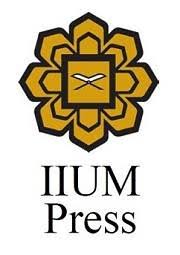The Status of the Sunnah according to the Qurʾan and the Arguments Against it Amongst the Qurʾan-Absolutists
DOI:
https://doi.org/10.31436/alburhn.v6i1.220Keywords:
Quranism, absolutism, the authority of ḥadīth, anti-ḥadīth, the Prophetic SunnahAbstract
From the Islamic point of view, there are two major groups of sources of sharīʿah which are the primary sources and the secondary sources. In this regard, the sunnah of the Prophet is recognised as the second primary source of sharīʿah after the Qurʾan. In other words, many verses of the Qurʾan and the texts of the Prophetic ḥadīths have stated that the Qurʾan is the direct speech of Allah, whereas the Sunnah is the indirect one. Hence, it is very obvious that there is a strong link between the Qurʾan and the Sunnah. On the contrary, some people have argued that the Qurʾan is already perfect and complete; in which it contains every necessary law and regulation of the sharīʿah. Hence, this group of people believe that it is not compulsory and sensible to follow the Sunnah of Prophet PBUH. Moreover, according to the anti-Hadith movement, depending on the Sunnah apart from the Quran for legislation is equal to believing in other Gods besides Allah, or assigning partners to Allah. Therefore, this paper is aimed at clarifying and removing the confusions among true Muslims about these misleading arguments. In this regard, this paper argues that relying on the Sunnah together with the Qurʾan in Islamic legislation is definitely not equal to ascribing another partner to Allah or committing shirk. The people who follow the Sunnah besides the Qurʾan are following the commands of Allah to obey the Prophet PBUH. Additionally, this paper would also attempt to present the Qurʾan and the Sunnah as two undivided foundations of the religion of Islam.
Downloads
References
Ahmad, Kassim. Hadith : A Re-Evaluation. Tucson, Arizona; Freemont, CA: Monotheist Productions International; Universal Unity, 1997.
al-Bukhārī, Muḥammad ibn Ismāʿīl Abū ʿAbd Allah. al-Jāmiʿ al-Musnad al-Ṣaḥīḥ al-Mukhtaṣar Min Umūr Rasul Allah Wa Sunanihi Wa Ayyāmihi. Edited by Muhammad Zuhair al-Nasir. Beirut: Dār Ṭawq al-Najāh, 2001.
al-Nawawī, Yaḥyā ibn Sharaf Abū Zakariyyā. al-Minhāj Sharḥ Ṣaḥīḥ Muslim Ibn al-Ḥajjāj. Beirut: Dār Iḥyāʾ al-Turāth al-ʿArabī, 1972.
al-Qurṭubī, Muḥammad ibn Aḥmad al-Anṣārī. al-Jāmiʿ Li Aḥkām al-Qurʾān. Riyadh: Dār ʿĀlam al-Kutub, 2003.
al-Sibaie, Mustafa Hasan. al-Istishrāq Wa al-Mustashriqūn: Mā Lahum Wa-Mā ʿAalayhim. Beirut: al-Maktab al-Islāmī, 1985.
al-Zuḥaylī, Wahbah ibn Muṣṭafā. al-Tafsīr al-Munīr Fī al-ʿAqīdah Wa al-Sharīʿah Wa al-Manhaj. Damascus: Dār al-Fikr al-Muʿāṣir, 1997.
Ghouri, Syed Abdul Majid, Khadijah Fatimah Syed Mumtaz al-Din, and Mohd Norzi Nasir. “Munkiru al-Sunnah Wa Ittijāhātuhum Wa Shubuhātuhum Wa Juhūd al-ʿUlamāʾ Fī Muqāwamatihim: ʿArḍ Tārīkhī.” In 1st INHAD Innternational Muzakarah & Mu’tamar On Hadith (IMaM). Kolej Universiti Islam Antarabangsa Selangor (KUIS), 2015.
Guillaume, Alfred. Traditions of Islam : An Introduction to the Study of the Hadith Literature. [Place of publication not identified]: Kessinger Publishing Llc, 2010.
Ibn Jarīr al-Ṭabarī, Muḥammad Abū Jaʿfar. Jāmiʿ al-Bayān Fī Taʾwīl Āy al-Qurʾān. Beirut: Muʾassasah al-Risālah, 2000.
Ibn Kathir, Ismail ibn ’Umar. Tafsir al-Qur’an al-’Azim. Beirut: Dar Ihya’ al-Turath al-’Arabi, 2000.
Ibn Mājah, Muḥammad ibn Yazīd al-Qazwīnī Abū ʿAbd Allāh. al-Sunan. Edited by Bashshār ʿAwwād Maʿrūf. Beirut: Dār al-Jīl, 1998.
Jamil, Khairil Husaini Bin. “Reasserting the Maqasid of Islamic Revealed Knowledge Curricula: The Experience of the Department of Qurʾan and Sunnah Studies in IIUM.” al-Burhān: Journal of Qurʾān and Sunnah Studies 4, no. 2 (2020): 1–25. https://journals.iium.edu.my/al-burhan/index.php/al-burhan/article/view/196.
Mazrūʿah, Maḥmūd ibn Muḥammad. “Shubuhāt al-Qurʾāniyyīn Ḥawl al-Sunnah al-Nabawiyyah.” In Nadwah ʿInayat al-Mamlakah al-ʿArabiyyah al-Saʿūdiyyah Bi al-Qurʾān al-Karīm Wa ʿUlūmihi. Madinah: King Fahd Glorious Quran Printing Complex, 2000.
Muir, William. The Life of Mahomet : With Introductory Chapters on the Original Sources for the Biography of Mahomet, and on the Pre-Islamite History of Arabia. Osnabrück: Biblio-Verl., 1988.
Muslim, Ibn al-Ḥajjāj al-Naysābūrī. al-Musnad al-Ṣaḥīḥ al-Mukhtaṣar Min al-Sunan Bi Naql al-ʿadl ʿan al-ʿAdl Ilā Rasul Allah. Edited by Naẓar Muḥammad al-Fāriyābī. Riyadh: Dār Ṭaybah, 2006.
Noorudheen, K. “Authenticity of Hadith Literature: With Special Reference to Orientalists ViewsVIEWS | Noor Mongam - Academia.Edu.” Darul Huda Islamic University, 2013.
Salem Alshehri, Mohammed. “Western Works and Views On Hadith: Beginnings, Nature, and Impact.” Marmara Üniversitesi İlâhiyat Fakültesi Dergisi • Cilt-Sayı 46, no. Nisan (2014): 203–24. https://doi.org/10.15370/muifd.41804.
Downloads
Published
How to Cite
Issue
Section
License
In general, reusing or reproducing substantial portions of al-Burhān content requires permission. This includes the use of text, figures, tables, multimedia content, and any other material published in any issues of al-Burhān Journal of Qur'an and Sunnah Studies. For some instances, al-Burhān may make its content freely viewable; however, such material may require permission for reuse. To seek permission, please contact the editorial.









